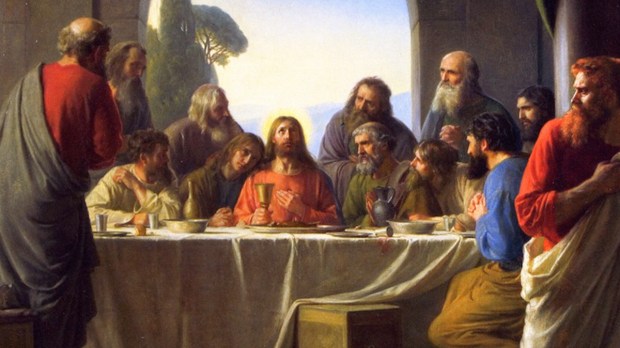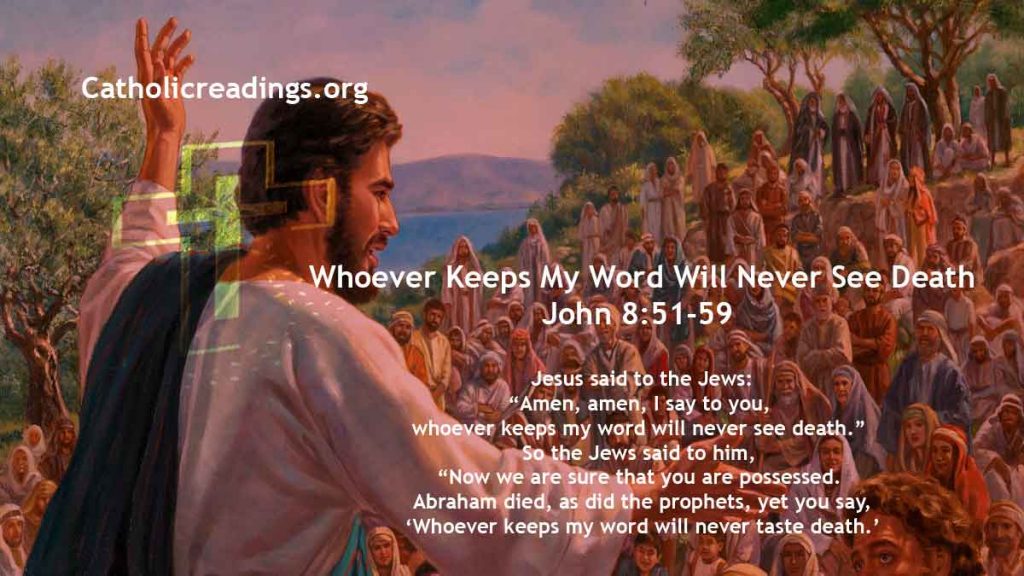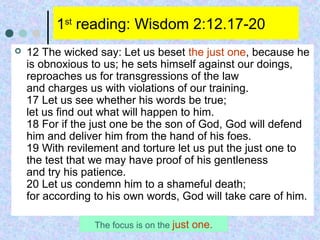
Today we celebrate Holy Thursday, the day Jesus instituted the Holy Sacrifice of the Mass and the priesthood during the Last Supper.
As we begin our journey with Jesus from death to life, our first reading reminds us of the Hebrews’s passage from slavery to freedom. Their journey, like ours, begins with a meal. So let’s look at the Hebrew Passover to see if we can come to understand more deeply the new Passover of Jesus, our Messiah.
Both for the Hebrews and for us, it all starts with a lamb. At the first Passover, God told each Jewish family to sacrifice an unblemished lamb and share its roasted meat at their meal. On the Cross, God provided a lamb for us—Jesus, the sinless Lamb of God, who offered Himself as a sacrifice for our sins so we could receive His flesh and blood at Holy Mass, the re-enactment of the Last Supper.
The Jewish Passover wasn’t just any sacrifice. It had the power to save the people from death. The blood of the lamb, which each family placed on their doorposts, protected them from angel of death. So the blood of Jesus the Lamb of God, was splashed on the wooden posts of the Cross to save us from eternal death.
The Jewish Passover sacrifice wasn’t completed by the death of the lamb but rather by the eating of its flesh. So too, Jesus told His disciples, “This is my body that is for you. Do this in remembrance of me.” His sacrificial death offered on the altar to the Father, becomes our own salvation as we eat His Body and drink His Blood in faith. The apostles were commanded to do it in remembrance of Him. Jesus gave them the authority to offer the Holy Sacrifice of the Mass and transform bread and wine into His Body and Blood to be eaten during Holy Communion. By the laying on of hands bishops ordain priests in every generation, so that Jesus may give us His Body and Blood in Holy Communion to Catholics.
Over the centuries people have made big sacrifices to protect priests during times when they were endangered by anti-Catholic laws, so they could attend Mass and receive Holy Communion. One such person who paid with her life for protecting priests is St. Margaret of York. Margaret Middleton was born in York, England, around 1556. Queen Elizabeth I came to the throne in 1558. The vast majority of the English people were Catholic and wished to remain Catholic. When the new queen threatened to destroy the Catholic Church, they eventually realized they would suffer for it.
Soon a law clearly stated the Mass was outlawed and the whole population was ordered to attend the new Protestant services. The Middleton family accepted the new religion and the Queen as the head of the church. At the age of 18, Margaret married a Protestant, John Clitherow, who was 21 years old at the time.
However, when Margaret was married she returned to her Catholic faith and allegiance to the Pope. Throughout their marriage John paid her fines for not attending Protestant church services and allowed Margaret to raise the children Catholic. Although their house became a place where the forbidden Catholic Mass was celebrated, he personally didn’t want to know it was happening.
John made things as easy as he could for his wife. He was careful to ignore that Father Mush was a frequent visitor and obviously celebrating Mass for Margaret and her friends.
Margaret was a loving wife and mother. However, she was disturbed by her husband’s loyalty to the Queen’s religion, but loved him dearly. John said his wife had only two faults, “she fasted too much and would not go to his non-Catholic church with him.” Her home became one of the most important hiding places for Catholic priests in all of England. The house had a secret cupboard where the vestments, wine and the altar breads were kept. It also had a “priest’s hole” where priests could be hidden.
However, on March 10, 1586 the Clitherow’s home was raided. The searchers found everything, where the Mass was celebrated, the vestments, and the altar breads. They carried off the incriminating evidence. By now the Clitherows had three children, the oldest was studying in France to be a priest, and when Margaret was taken away from her home and thrown into prison her two younger children never saw her again. The boy went on to become a priest and one of her daughter’s became a religious Sister.
On March 14th, Margaret was brought before the judge in Common Hall. Her indictment was read and she was asked how she pleaded. In answer she said, “I know of no offense whereof I should confess myself guilty. Having made no offense, I need no trial.” The next morning she was taken back to Common Hall. The judge sentenced her to be crushed to death for having “harbored and maintained Jesuits and seminary priests, traitors to the Queen’s majesty and her laws.” Under the law of Queen Elizabeth, the accused would lay on the stone floor of an underground cell with a door laid over them and heavy stones piled on the door. Further weights were piled on the door until the person was crushed to death.
Ten days later, on March 25th, 1586 she was executed by crushing. Before her execution she prayed for the Queen and especially that she would become Catholic! The executioners placed the board upon her and the huge stones on top. Within 15 minutes she was dead. It was Good Friday. She was left from 9 in the morning until 3 in the afternoon under the door and her body was buried in waste ground hoping it wouldn’t be found again. How similar to the death of Jesus. His Passion began at 9am and ended at 3pm. Calvary was a garbage dump. And His body was placed in a grave near the dumpsite.
Pope Paul VI canonized Margaret Clitherow in 1970 and gave her the title “Pearl of York.” Her home has since become a place of pilgrimage visited by thousands each year. She is called a martyr of the Eucharist because she was executed for protecting priests and making it possible for them to celebrate Mass. It is through the faith and courage of people like Margaret we are able to celebrate the Eucharist here today.
After Mass we will have the incensation of the Hosts on the altar and then proceed to take them to a tabernacle at the Parish Hall. You are invited to come and spend an hour with Jesus, because it was on this night-- Jesus asked His disciples to spend an hour with Him as He endured His agony in the garden. He told Peter, “Will you not watch an hour with me?”
You are invited to console the Heart of Jesus by being there with Him and to adore, thank, and praise Him for the gift of the Holy Mass, of being able to receive Him in Holy Communion, and for the gift of the sacred priesthood.















